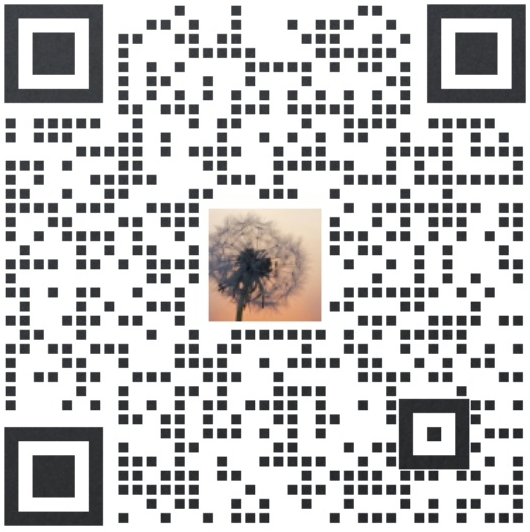音频科普:把微生物留在了祖国的美国移民
音频科普:把微生物留在了祖国的美国移民
Immigrants to the U.S. lose their native mix of gut microbes almost immediately after arriving in the U.S.—which researchers can't quite explain.移民至美国的人,几乎在他们抵达美国的那一刻就遗失了他们自带的肠道微生物——研究者无法完全解释清楚这个现象。
撰文\播音:克里斯托弗•因塔利亚塔(Christopher Intagliata)
翻译:陈美娟
审校:许楠
Immigrants to the U.S. might lose touch with certain customs and traditions back home. But here's something else they lose: their microbes.
美国移民可能会失去与家乡的某些习俗和传统的接触。同时,他们还失去了一样东西:体内的微生物。
"When they came to the U.S. almost immediately they began losing their native microbes." Dan Knights, a computational biologist at the University of Minnesota. "And over time the balance shifted to the point where they were dominated by the U.S. associated microbes."
“当他们到达美国的那一刻,就开始失去本有的微生物种类。”丹•奈茨(Dan Knights)是一名来自明尼苏达大学的计算生物学家。“随着时间流逝,与美国相关的微生物会主导菌群平衡。”
He's referring to first- and second-generation immigrant women, from the Hmong and Karen ethnic minorities in southeast Asia. His team sequenced the DNA found in their feces.
他引用了来自东南亚少数民族群体中苗族和喀伦族的第一和第二代女性移民的数据。研究团队对她们粪便中的DNA进行了测序。
And they saw that there was an immediate decline in the number and diversity of gut microbes among the immigrants, compared to their counterparts still living back home. And the decline continued over time.
他们观察到,与留在家乡的人相比,移民群体中肠道菌群的数量和多样性有明显降低。而且降低的程度会随着时间的推移而加深。
If you're thinking, well, maybe the women just switched up their diets - started eating more hamburgers, more bacon and eggs? Dietary surveys don't bear that out. The women weren't changing their diets nearly fast enough to explain the drop in diversity.
如果你在想,好吧,也许仅仅因为这些女性改变了饮食习惯了——例如开始多吃汉堡包,培根,鸡蛋呢?饮食上的变化并不能造成这点。这些女性改变饮食习惯的速度没有快到足以解释微生物多样性下降的地步。
"It seems as though there's something else going on that has to do with the U.S. lifestyle… Antibiotics could be playing a role. The water supply could be playing a role. Could be other aspects of lifestyle, stress, exercise, hygiene. But we don't have enough information yet to be able to pin it down."
“看或许与美国人的生活方式有关……抗生素可能起到一定作用。水供应情况起到一定作用。也有可能与生活方式的其他方面有关,如压力,锻炼和卫生情况。但我们没有足够信息来锁定具体是哪个原因。”
The results are in the journal Cell. [Pajau Vangay et al., US Immigration Westernizes the Human Gut Microbiome]
这项研究结论发表在《细胞》杂志上。
Some of the missing microbes helped digest traditional foods like tamarind, palm and coconut. But the consequences could be more severe than indigestion. "We have evidence from many studies now, especially even causal evidence in a number of animal studies, that having the wrong set of microbes, or missing the right set of microbes, can cause many of the diseases that are rising in industrialized nations." Things like obesity, metabolic disease.
某些失去的微生物能够帮助消化如酸豆、棕榈和椰子这类传统食物。但是微生物种类多样性下降可能会引起比消化不良更严重的后果。“我们现在已经从许多研究,尤其是从大量动物实验得到了平均因果证据,结果表明,微生物组成错误,或者说失去了正确的微生物群组合的话,会导致工业化国家多种疾病发生率升高。”例如肥胖、代谢性疾病等等。
Which we might be able to fix, he says, if we're able to solve this microbial mystery.
但奈茨说,如果我们能够解开微生物的谜团的话,我们便能够解决这些问题。
关注【深圳科普】微信公众号,在对话框:
回复【最新活动】,了解近期科普活动
回复【科普行】,了解最新深圳科普行活动
回复【研学营】,了解最新科普研学营
回复【科普课堂】,了解最新科普课堂
回复【科普书籍】,了解最新科普书籍
回复【团体定制】,了解最新团体定制活动
回复【科普基地】,了解深圳科普基地详情
回复【观鸟知识】,学习观鸟相关科普知识
回复【博物学院】,了解更多博物学院活动详情
Immigrants to the U.S. lose their native mix of gut microbes almost immediately after arriving in the U.S.—which researchers can't quite explain.移民至美国的人,几乎在他们抵达美国的那一刻就遗失了他们自带的肠道微生物——研究者无法完全解释清楚这个现象。
撰文\播音:克里斯托弗•因塔利亚塔(Christopher Intagliata)
翻译:陈美娟
审校:许楠
Immigrants to the U.S. might lose touch with certain customs and traditions back home. But here's something else they lose: their microbes.
美国移民可能会失去与家乡的某些习俗和传统的接触。同时,他们还失去了一样东西:体内的微生物。
"When they came to the U.S. almost immediately they began losing their native microbes." Dan Knights, a computational biologist at the University of Minnesota. "And over time the balance shifted to the point where they were dominated by the U.S. associated microbes."
“当他们到达美国的那一刻,就开始失去本有的微生物种类。”丹•奈茨(Dan Knights)是一名来自明尼苏达大学的计算生物学家。“随着时间流逝,与美国相关的微生物会主导菌群平衡。”
He's referring to first- and second-generation immigrant women, from the Hmong and Karen ethnic minorities in southeast Asia. His team sequenced the DNA found in their feces.
他引用了来自东南亚少数民族群体中苗族和喀伦族的第一和第二代女性移民的数据。研究团队对她们粪便中的DNA进行了测序。
And they saw that there was an immediate decline in the number and diversity of gut microbes among the immigrants, compared to their counterparts still living back home. And the decline continued over time.
他们观察到,与留在家乡的人相比,移民群体中肠道菌群的数量和多样性有明显降低。而且降低的程度会随着时间的推移而加深。
If you're thinking, well, maybe the women just switched up their diets - started eating more hamburgers, more bacon and eggs? Dietary surveys don't bear that out. The women weren't changing their diets nearly fast enough to explain the drop in diversity.
如果你在想,好吧,也许仅仅因为这些女性改变了饮食习惯了——例如开始多吃汉堡包,培根,鸡蛋呢?饮食上的变化并不能造成这点。这些女性改变饮食习惯的速度没有快到足以解释微生物多样性下降的地步。
"It seems as though there's something else going on that has to do with the U.S. lifestyle… Antibiotics could be playing a role. The water supply could be playing a role. Could be other aspects of lifestyle, stress, exercise, hygiene. But we don't have enough information yet to be able to pin it down."
“看或许与美国人的生活方式有关……抗生素可能起到一定作用。水供应情况起到一定作用。也有可能与生活方式的其他方面有关,如压力,锻炼和卫生情况。但我们没有足够信息来锁定具体是哪个原因。”
The results are in the journal Cell. [Pajau Vangay et al., US Immigration Westernizes the Human Gut Microbiome]
这项研究结论发表在《细胞》杂志上。
Some of the missing microbes helped digest traditional foods like tamarind, palm and coconut. But the consequences could be more severe than indigestion. "We have evidence from many studies now, especially even causal evidence in a number of animal studies, that having the wrong set of microbes, or missing the right set of microbes, can cause many of the diseases that are rising in industrialized nations." Things like obesity, metabolic disease.
某些失去的微生物能够帮助消化如酸豆、棕榈和椰子这类传统食物。但是微生物种类多样性下降可能会引起比消化不良更严重的后果。“我们现在已经从许多研究,尤其是从大量动物实验得到了平均因果证据,结果表明,微生物组成错误,或者说失去了正确的微生物群组合的话,会导致工业化国家多种疾病发生率升高。”例如肥胖、代谢性疾病等等。
Which we might be able to fix, he says, if we're able to solve this microbial mystery.
但奈茨说,如果我们能够解开微生物的谜团的话,我们便能够解决这些问题。
关注【深圳科普】微信公众号,在对话框:
回复【最新活动】,了解近期科普活动
回复【科普行】,了解最新深圳科普行活动
回复【研学营】,了解最新科普研学营
回复【科普课堂】,了解最新科普课堂
回复【科普书籍】,了解最新科普书籍
回复【团体定制】,了解最新团体定制活动
回复【科普基地】,了解深圳科普基地详情
回复【观鸟知识】,学习观鸟相关科普知识
回复【博物学院】,了解更多博物学院活动详情

做科普,我们是认真的!
扫描关注深i科普公众号
加入科普活动群

- 参加最新科普活动
- 认识科普小朋友
- 成为科学小记者
 会员登录
会员登录
















 深圳市宝安区国际会展中心20号馆
深圳市宝安区国际会展中心20号馆







